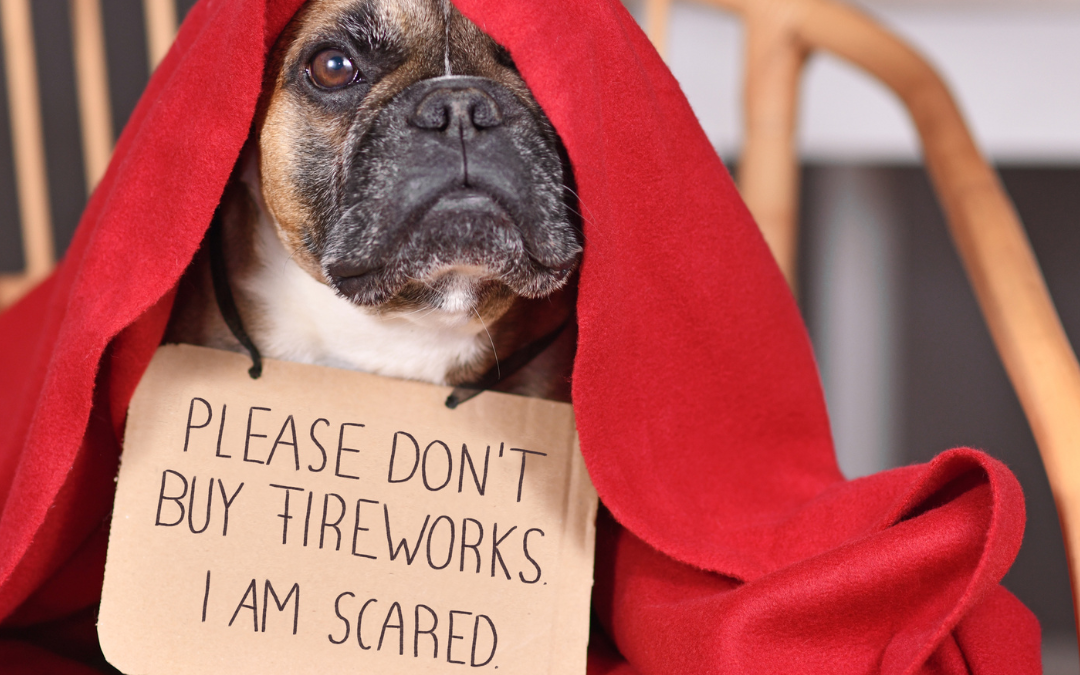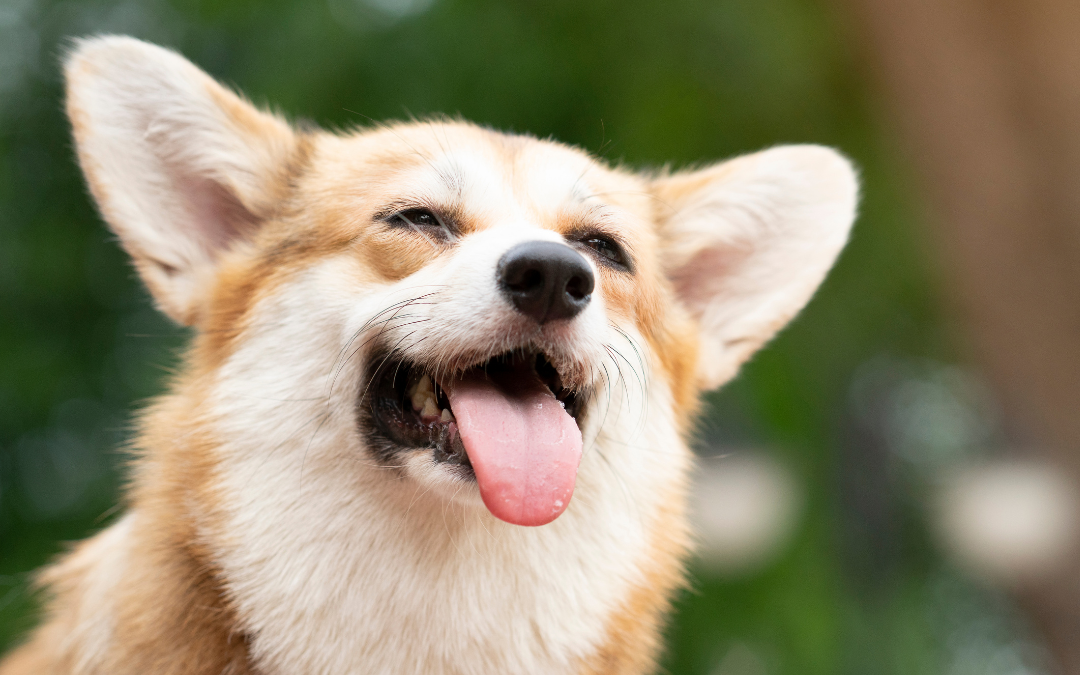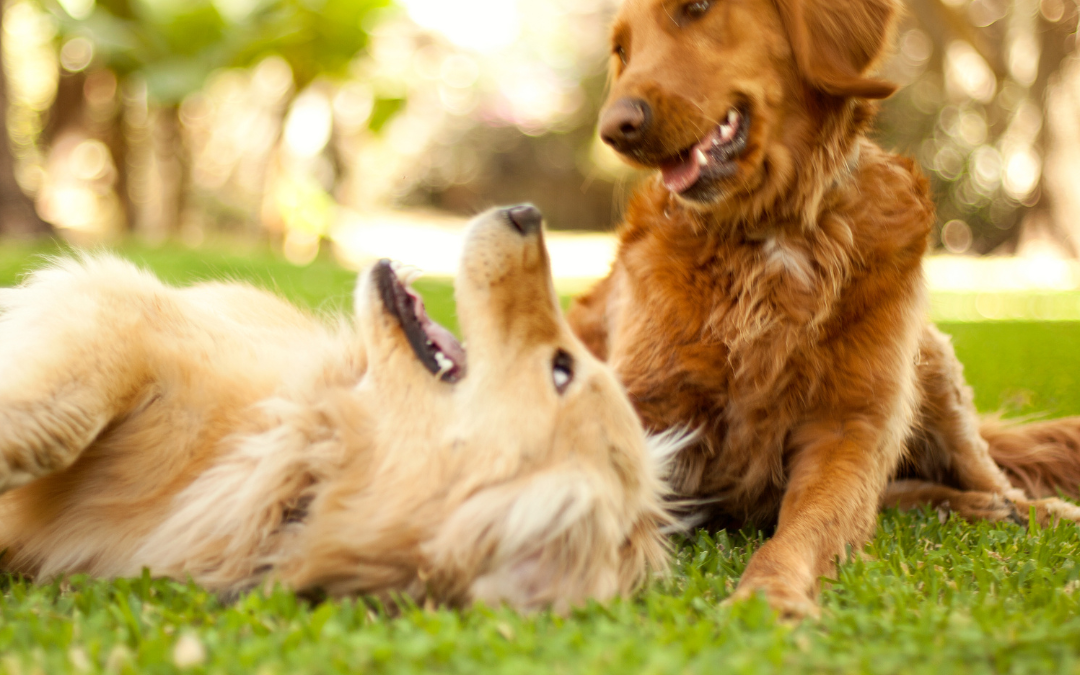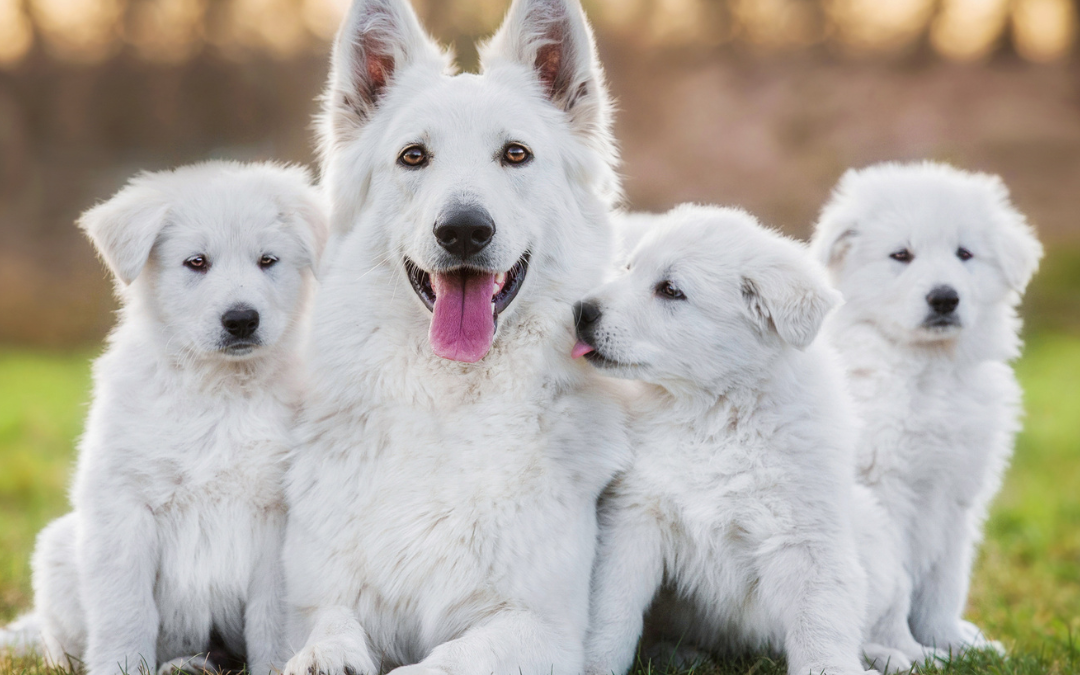
How to Calm Your Dog During Fireworks – 3 Relaxation Tips
Independence day is a wonderful time for family, fireworks, and fun … for humans.
When it comes to pets, fireworks and crowds can be the cause of much fear and anxiety. Dogs, in particular, tend to be very afraid of fireworks. There are many reasons for this, but a couple stand out above the rest.
One is that a dog’s hearing is much more acute than that of humans, meaning the sounds will be much more intense.
Dogs also have a harder time with nuance, and they understand that loud noises are frequently associated with threats (growling, barking, thunder during storms, etc.).
From an evolutionary perspective — Dogs have been hardwired over millennia to either fight against these noises or flee from them. Anxiety responses are simply a part of nature. So, while humans understand that fireworks are associated with positive things, most dogs aren’t so lucky.
So how can dog owners help calm their pet during July 4 fireworks? We discuss three potential solutions below.
1. Sound Proofing
To calm your dog as fireworks burst in air during the 4th of July, you could fortify your pet’s space with noise dampening materials.
A lot of people think you have to buy special insulation or equipment to soundproof a room, but really all you need is to pin blankets or pillows to a wall, window, or doorway.
You can also invest in white noise machines. There are a number on the market that you can get for under $20, and most have multiple sounds: From white noise static, to oscillating fans, to the sounds of calming ocean waves. Whether used on their own, or in combination with the room soundproofing tips above, these machines work wonders in easing a dog’s noise related anxieties during 4th of July fireworks displays.
2. A Warming Hug
Many dogs feel comforted by human contact, hugs, or simply by hiding under something out of the way.
Weighted blankets are a great way to mimic these things. As with humans, weighted blankets are great for reducing anxiety, improving sleep, and providing an overall sense of calm and comfort. It’s important to keep your dog’s den, crate, or bed in a section of the home that is far from windows; somewhere that has plenty of soft toys, pillows, and your dog’s weighted blanket at the ready.
3. Calming Products
There are many safe and effective products on the market that are designed to reduce anxiety in pets, such as melatonin and CBD calming treats; 100% essential oils, and many other balms, salves, and supplements. If you choose to give your dog melatonin, just make sure it is a supplement that is approved for dogs. Human melatonin supplements often contain xylitol which is unsafe for our canine friends.
No matter the noise or the reason – if your dog has anxiety, it’s important to address it so that it doesn’t lead to other health issues, and at the very least, you will be ensuring your pet is comfortable and happy. It is also important to discuss your pet’s anxiety with a vet prior to taking any action.
At Pet Wants, we have many safe and effective solutions, in addition to what is mentioned above. If you would like to schedule a nutrition consultation, please contact us.



